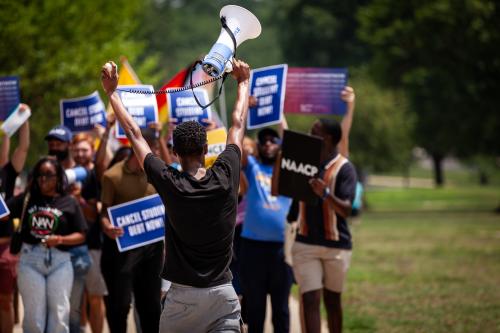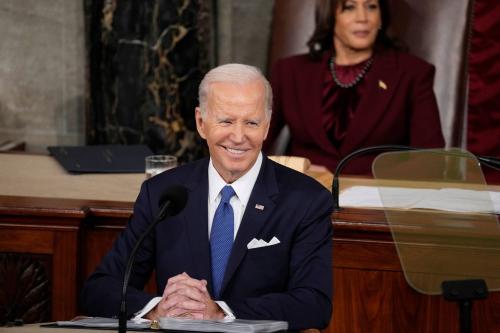In a single paragraph, President Obama’s State of the Union address opened the door to implementing important changes in the nation’s multitude of preschool programs and to increasing the number of children participating in quality programs.
Of all the opportunities to promote the development of poor children and to increase opportunity in America, none is as promising as high-quality preschool programs. Although there are still disagreements about the strength of evidence on these programs, the literature on preschool’s impacts on a host of short-term and long-term child outcomes is strong, and there are several excellent benefit-cost studies as well.
Research leads to the conclusion that if poor children attended high-quality preschool, they would be better prepared to achieve and behave well in public schools. There could also be longer-term outcomes including higher graduation rates, less delinquency, less teen pregnancy, and higher rates of employment and income. But these benefits and their corresponding budget savings will not be achieved unless the preschool education is high-quality, provided by highly effective teachers. Today, most preschool facilities do not meet that standard.
As would be expected in a State of the Union address, the president gave only a hint of what he had in mind for preschool. His goal was to “make high-quality preschool available to every child in America.” If the Obama administration is serious about expanding early childhood programs, here is one way to proceed.
The first order of business should be to figure out how to get the most out of the programs we now have and the money we now spend. The president should appoint a small group within the administration that includes one senior official from the Departments of Education, Health and Human Services, and Labor, as well as the White House and Office of Management and Budget, and charge them with presenting a bold plan for coordinating these programs. The president’s task force should consult widely, especially with the states, for how these programs can be better coordinated at the state and local level.
Second, the president should abandon his idea of providing high-quality preschool for “every child in America.” Rather, his task force should assume that only children from poor and near-poor families would be eligible for federal subsidies. Especially in this time of budget crisis, it is likely to be decades before the combined financing of the federal and state governments can afford the additional billions of dollars that would be required to provide free, universal preschool programs.
Third, the task force plan should include strategies for providing the poorest children and families, as well as those at risk of abuse and neglect, with home visiting and other support services. For this relatively small group, the services should begin in the prenatal period and extend throughout the preschool years.
Fourth, we will eventually need additional dollars to make sure every poor and near-poor child can receive services. Thus, the group should make an estimate of the costs of their system and propose several alternatives for sharing the burden between the states and the federal government.
The nation should stop setting preschool policy by merely creating more programs and adding money to existing ones in accord with political feasibility. Instead, we need a vision of the comprehensive system we should build and estimates of the long-term costs of the system. As President Obama said several times during his State of the Union address, “we can do this.”



Commentary
Op-edEstablishing a Task Force for Expanding Preschool Programs
February 13, 2013